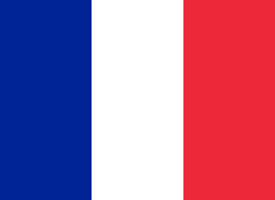We have had a fabulous time in Romania so far. The people are wonderful hosts. We’ve stayed with many families. Usually it starts like this…we stop along a bench in a small village to eat our lunch, then someone comes out of the house or down the street, and talks to us and ends up by asking us to stay with them for the night. Maybe a neighbor comes by with a bag of food for us. Or, maybe we’ll stop to ask someone to refill our water bottles from the well behind their house, and more often than not, they’ll give us not only water, but also enough food to last for a while.
The people themselves are very handsome. The majority have dark skin and hair. The ones we have met are happy when we tell them we have had a good time in their country, because they are anxious for people to know that the majority of the people are honest and good and that most Romanians are not gypsies (Romania has a bad reputation in Western Europe because the Romanians that go to Italy, Spain, France, and Austria, for example, are mostly gypsies and are seen to be either beggars, thieves, or both).
When we entered Romania, it was like stepping back 100 years in time. There were many horses and wagons, even cows pulling wagons. Men and women were leading animals home from the fields.
The towns we passed through were all remarkably similar. Each one has one main avenue which is paved and on which is located the majority of the houses. The side roads are made of dirt. The main avenue is fairly wide, big enough to let horses and wagons, cows and sheep, cyclists, pedestrians, and cars pass by. Horses and wagons are by far the most common sight, after which comes pedestrians and cyclists. Cars are few and far between.
Benches line the streets in every town. They are outside every third or fourth house. People often sit on these benches, conversing with their neighbors. The towns themselves are remarkably clean, which is a refreshing change from Serbia. There is no trash, no litter to mar the harmonious picture of the town. There are many wells lining both sides of the street in every town, where the townspeople draw water. Also, most houses have their own wells in the garden behind their house.
The houses themselves are very well taken care of. They are painted different colors, the doors and window frames contrasting with the color of the house itself. They are painted variously mint green with rose trimming, sky blue with lime green, pink and lavender, marigold and forest green, marroon and maize. The fences, which run the length of the town, are painted to match the color of each house, so that the color changes from one neighbor to another. Cherry trees with small white flowers line the streets and dirt sidewalks of most villages.
In the small villages, there are generally only three buildings aside from the houses: the small general store, the bar, and the church. The bar is a favored place for the men to socialize, while the women converse on the benches lining the main street. The men wear tall black fur caps, Russian-style, and the married women wear headscarves. They were surprised that I did not wear one. But headscarves are cheaper than wedding bands, and people do not wear wedding bands in the villages. In the cities, both men and women wear wedding rings, and the women lose the headscarf.
There is no running water in the Romanian villages. That means no toilet, no shower, no sink. There is an outhouse out back, and you wash up after heating water in a pot on the stove. No running water, but the cable is so cheap that every household has it, along with forty channels showing everything ranging from MTV to VH1 to Romanian and French talk shows to South American soap operas to American movies.
On every day but Sunday, you can see the townsfolk laboring away in the fields. All of the work is manual; sometimes you can see horses and donkeys, or even cows, pulling plows over the fertile fields. Other than that, a sea of bent backs. As dusk approaches, people head home from the fields, sometimes in horse and wagon, sometimes by bike, sometimes by foot, with farming tools slung over their shoulder.
Sunday is the day of rest, when the towns fill up with neighbors sitting in groups on the benches, on the sidewalk, or in the bars. It is a well-earned and much appreciated day of rest, for the work starts all over again at dawn on Monday morning, when the rooster crows. And the rooster doesn’t let you sleep in. You can hear its cock-a-doodle-doo way before the sun wakes from its sleep.


